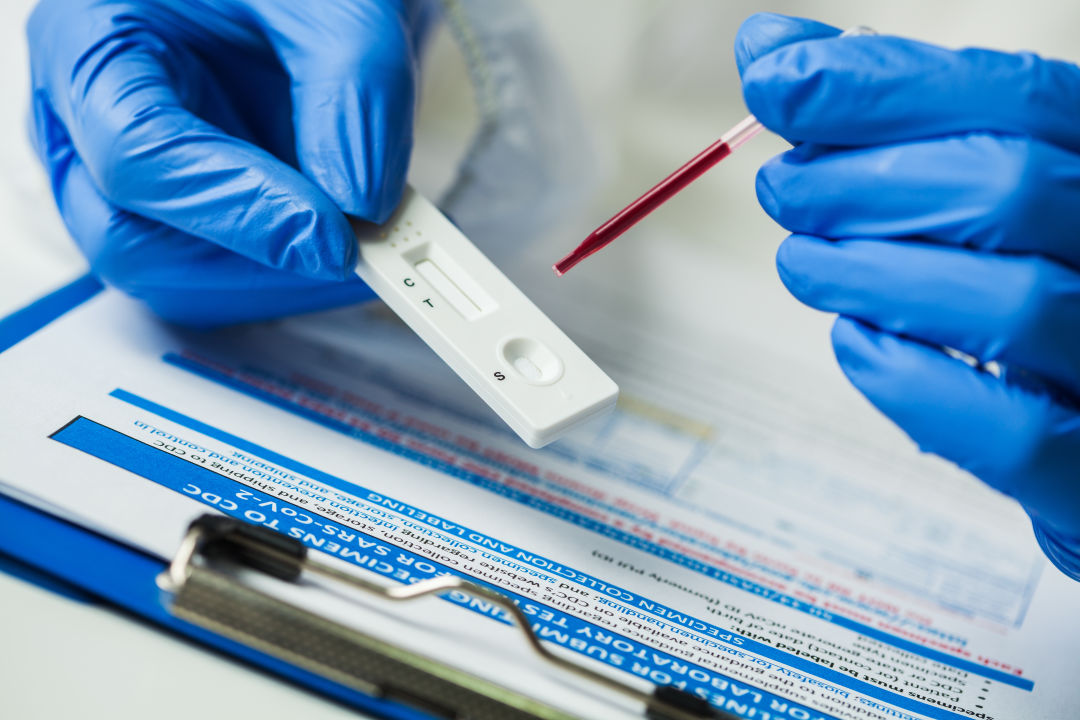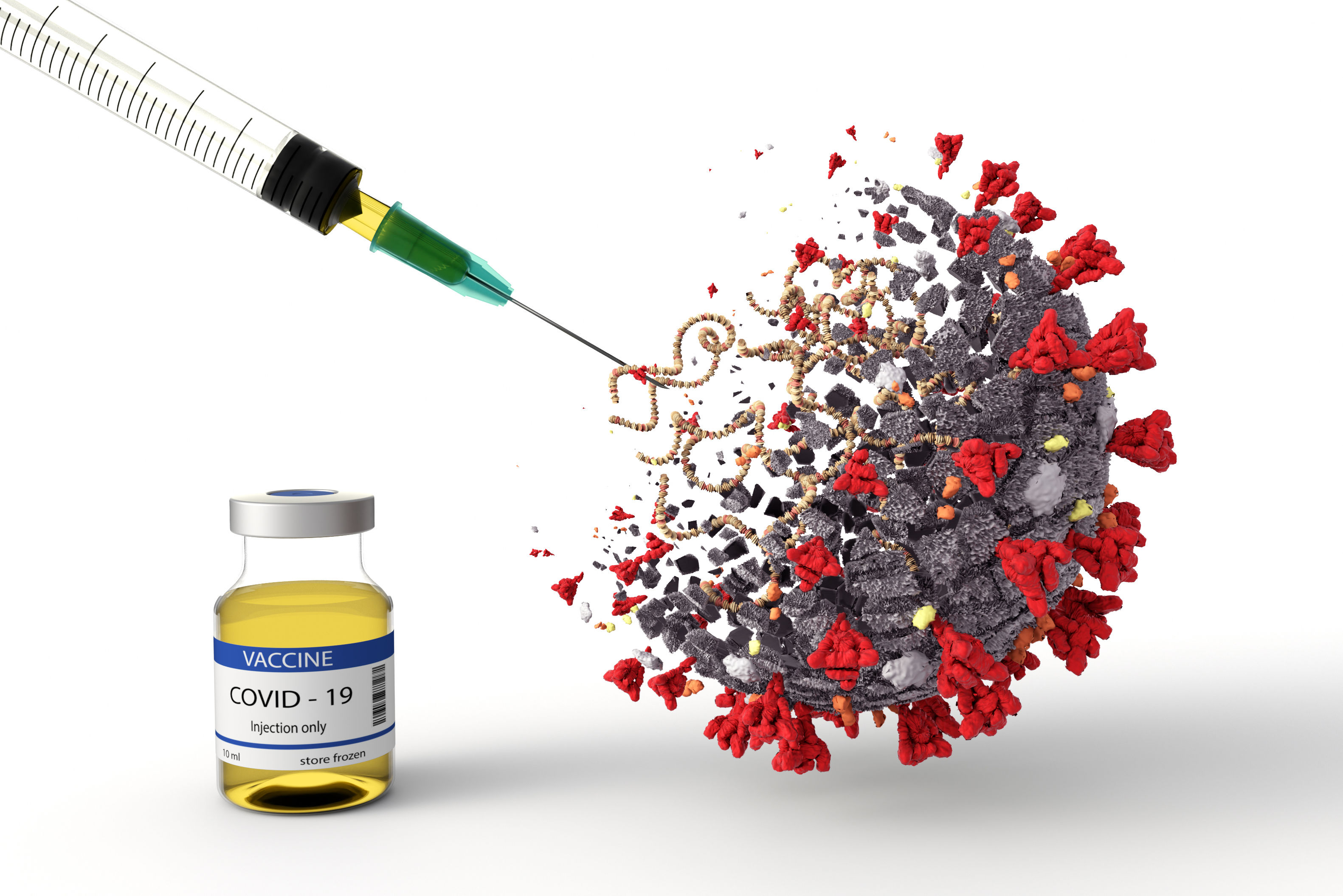The Initial Results Are in for the Health Department's Citywide Antibody Testing Study

Updated 6:06 p.m. Dec 14
The results are in for the first phase of the antibody study conducted by the Houston Health Department, Rice University’s Kinder Institute, Baylor College of Medicine, and the Centers for Disease Control and Prevention.
From September 8 to 19, 420 homes were selected to test members of their respective households for Covid-19 antibodies. A total of 678 people volunteered to give blood samples, said Loren Hopkins, the health department’s chief environmental science officer.
According to the study results, about 13.5 percent of the Houston population had been infected with the virus, which translates to approximately 250,000 people, by September. This is a rate four times higher than the number of people who actually got a positive Covid-19 test during that same period. This could indicate that the testing data alone does not give us a complete description of exactly how many people have gotten Covid-19 in Houston, Hopkins noted.
Other interesting data points from the study: Antibodies were higher in Hispanic and non-Hispanic Black population groups, younger people, and women.
The results of this survey underscore the necessity of masks and social distancing, said Mayor Sylvester Turner.
A second phase of this study will be conducted in January 2021. Previous participants will get retested for antibodies and an additional 420 homes will be asked to participate. According to Hopkins, this is to measure how much the virus has spread since phase one and how antibodies decrease over time.
The testing in January will see how people maintain their immunity over time, said Dr. David Persse, chief medical officer of the health department. This is important to know because in order for life to return to normal, we need to reach herd immunity. To achieve herd immunity here, Persse explained, 70-plus percent of the city’s population will need to be simultaneously immune.
The need for so many people to be included to achieve herd immunity, he said, is just “another reason why everybody needs to consider getting vaccinated.”
Keep up with news about the Covid-19 vaccine in Houston here.
Published 5:18 p.m. Sept 2
Get ready, Houston, you might be receiving a visit from the city in the coming weeks.
The Houston Health Department, in partnership with Rice University's Kinder Institute, Baylor College of Medicine, and the Centers for Disease Control and Prevention, is launching a two-phased Covid-19 antibody testing survey across Houston to identify the virus’s spread across the city.
The first phase will take place September 8–24. The trial will randomly select addresses across the city, said Dr. David Persse, the health department’s health authority, Tuesday afternoon. After the sampling pool is selected, teams of the health department staff and Houston Fire Department paramedics will knock on those doors, asking residents inside to fill out a survey. Teams will be identifiable by their “Better. Together.” shirts.
“If we knock on your door, I strongly encourage you and your loved ones to participate in this important survey,” Mayor Sylvester Turner said Tuesday. “The data you provide by participating will help inform strategies to mitigate the effects of COVID-19.”
The survey consists of a simple questionnaire for every member of the household, and it will ask Covid-19-related questions. Much like contact tracing, there will be no questions about private information or citizenship, Persse said. After that, the team will then ask for a voluntary blood sample for every member of the household to test for Covid-19 antibodies. Persse emphasized that every part of the survey, and especially the blood sample, is completely voluntary.
Antibodies are the immune system’s memory, Persse explained. "Your immune system knows what is you." When something foreign enters your body, like the coronavirus, your immune system investigates and fights it. It then files the memory of the fight away in antibodies so it can fight the virus again later if needed. So, the antibody test “is a test to see if sometime in the past you have been infected."
Folks will receive the results of their antibody testing after about two weeks. In Phase 2, which will take place in early 2021, the team will return to the people who tested positive for antibodies and test them again, as well as testing new people.
The goal of this survey, along with giving the city a better idea about how antibodies impact immunity, is to map out how many people have previously had Covid-19, Persse said.
Currently the city is already mapping the virus’s progress around Houston with its vulnerability map, which tracks Covid-19 levels per super neighborhood using results from local testing sites.
While this method of mapping gives a general idea of which areas have higher case counts, it is inherently flawed, Persse said. Because Covid-19 testing is voluntary, that creates a bias in the data, which could be skewing the maps in the wrong direction. This antibody survey, with its randomly selected participants, will get rid of that bias.
Said Persse, "It may give us a clearer view of where the virus has been."




